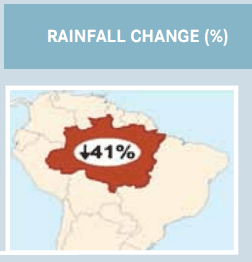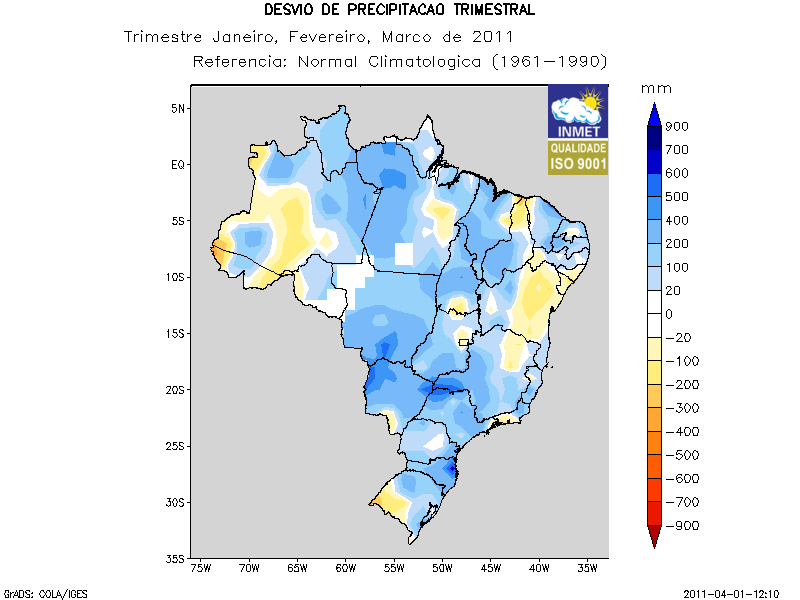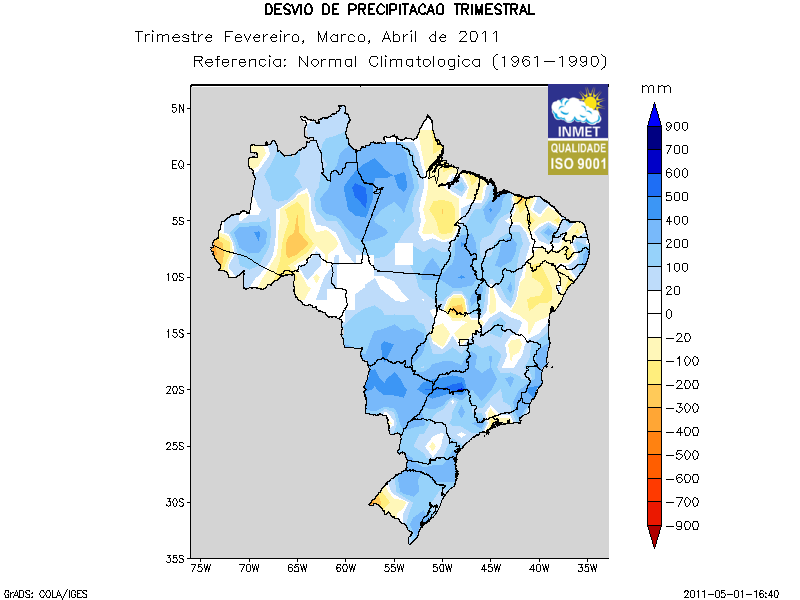The projected decreases in rainfall may be as a result of warmer waters in the Atlantic and Pacific Oceans causing changes in wind patterns and the transport of moisture across South America. This could lead to major economic impacts in Brazil: more than 70% of Brazil’s energy is derived from hydroelectric sources, so reduced rainfall may limit electricity supplies, affecting the industrial activities in the economically most important regions of Brazil
They got that pegged – only backwards.





lmao! They can’t get their own
climatelong range weather forecast right so now their messing up other countries forecasts?….lolMaybe they need a hint. It’s the models stupid! The computer models have a warming bias GIGO.
Wrong is one of the few things the Met Office gets right.
They want sell more wind farms and solar panels to us… Just it. And dont forget: Scientists alarmists are in government here now. The top alarmists are in important functions in our government.
Just search by the coordinator of the publication here, in your site… interesting…
The global warming crackpots in Parliment need to be voted out of office, before this gets completely out of hand.
Then they will be replaced with Labour who are even greater global warming crackpots. It’s leader, Ed Milliband, was the first Secretary of State for Climate Change. 😉
Bad spelling:
“its“
All right… so, how many hydroelectric sources you can see in amazonian in the map below ???
http://www.aneel.gov.br/area.cfm?idArea=122&idPerfil=2
We need Belo Monte, right now!!! No wind farms, no solar panels.
JFB
Can we please get the Met to predict oil prices will skyrocket due to increased temperatuer in the coming years?
I for one could use the resulting discount on heating oil!
There are few global warming “secptics” running for office in the UK? Someone needs to fill that vacuum.
I’m not sure that taking one data point – a single month – is a thorough debunking of their prediction. The prediction you cite is for 2080. How anyone can predict that far in the future, I don’t know.
This paper shows that the Amazon basin has seen less rainfall at the end of the 20th Century:
http://onlinelibrary.wiley.com/doi/10.1002/joc.1791/abstract
Although I didn’t read the paper, calculating from the 0.32% per year mentioned abstract suggests that rainfall in the area should have fallen around 9.5% between 1975 and 2003. You may also want to google “two once a century droughts in one decade”.
You may also recall that many predictions suggest the world is going to get warmer and wetter with climate change, which contradicts with this. However, I think I remember reading some research recently which says that the Amazon gets its rain via the Doldrums, which will move north as climate changes, breaking that connection. So, although I understand we’re expecting more rain in general, it looks like the Amazon will get drier.
Thanks for bringing this report to my attention – I hadn’t seen it before.